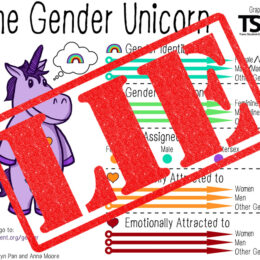10/15/2010 – Jay Richards –
The charge that if you defend free markets and limited government, then you’re a Social Darwinist is a hackneyed and dishonest claim of the Left. I’m not sure who first tried to identify conservative economic policies with Social Darwinism, though Walter Mondale famously attacked (and misrepresented) Ronald Reagan in the 1980s for defending “Social Darwinism” rather than “social decency.”
In a recent column, Robert Reich indulges this nonsense once again (“Republican Economics as Social Darwinism”). The charge, of course, is that conservatives or Republicans oppose say, nationalized medicine, or a massive welfare state, or unsustainable entitlement spending, because they think society should allow the weak to be weeded out and the strong to survive.
That’s quite an accusation, so presumably Reich will provide quotations from prominent conservatives making this argument, right? Or maybe he’ll provide one quote, or at least a paraphrase of a statement? Nope. Instead, he quotes a 1929 line from Andrew Mellon, though Reich initially attributes it to John Boehner:
John Boehner, the Republican House leader who will become Speaker if Democrats lose control of the House in the upcoming midterms, recently offered his solution to the current economic crisis: “Liquidate labor, liquidate stocks, liquidate the farmer, liquidate real estate. It will purge the rottenness out of the system. People will work harder, lead a more moral life.”
Actually, those weren’t Boehner’s words. They were uttered by Herbert Hoover’s treasury secretary, millionaire industrialist Andrew Mellon, after the Great Crash of 1929.
But they might as well have been Boehner’s because Hoover’s and Mellon’s means of purging the rottenness was by doing exactly what Boehner and his colleagues are now calling for: shrink government, cut the federal deficit, reduce the national debt, and balance the budget.
This is perverse. There is absolutely no evidence that either Boehner or any other prominent Republican believes or has ever made a Mellon-like argument. Is Reich really so obtuse as to think that the only possible reason someone might want to reduce the deficit is a desire to destroy the weak? Does he really think his readers are so obtuse that they will believe that?
The actual fiscal arguments that conservatives make include the following: government spending is on an unsustainable path that will lead to national bankruptcy; the federal government has grown too powerful and too intrusive; you can’t get wealthy by spending money you don’t have; government-controlled stimulus plans don’t work; overweening regulations choke off the human ingenuity and risk-taking that create new wealth; big government welfare programs harm the ones most in need of assistance and create generational cycles of poverty and dependence. None of these arguments has anything to do with Social Darwinism.
There were, of course, a few intellectuals who defended capitalism in Darwinian terms a century ago, such as Yale social scientist William Graham Sumner. “Millionaires,” he said, “are a product of natural selection.” If we find survival of the fittest distasteful, “we have only one possible alternative, and that is the survival of the unfittest.” Sumner criticized welfare programs as an “absurd attempt to make the world over.” But no prominent fiscal conservative would make such grotesque arguments today.
On the contrary, it is now primarily conservatives who defend the inherent dignity of every human life no matter his stage of development or social utility. Moreover, it is now primarily conservatives who insist that human beings add value and do not merely consume scarce resources.
It’s time to call out this fiscal-conservatism-as-Social-Darwinism charge for what it is: a thinly disguised and dishonest slander. The only time you hear it is when someone like Reich is falsely attributing it to conservatives. Like the reductio ad Hitlerum, it is a figment of the left-wing imagination, which seems to be running out of persuasive arguments against limited government and fiscal restraint.
HT: The American



